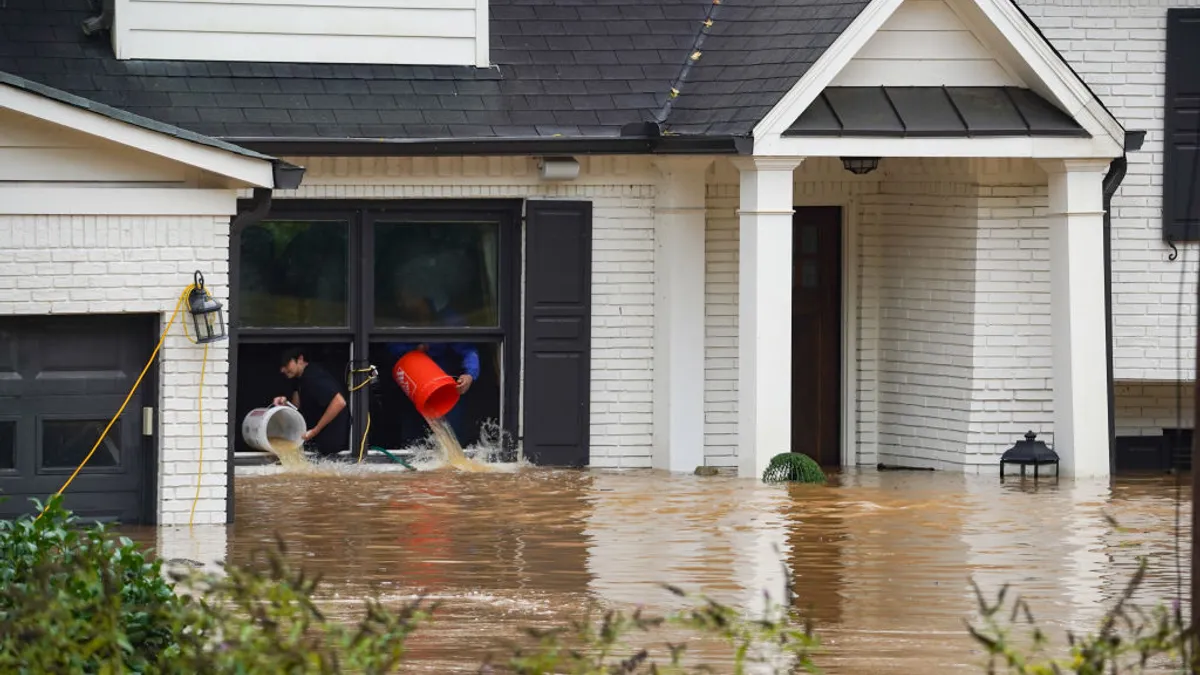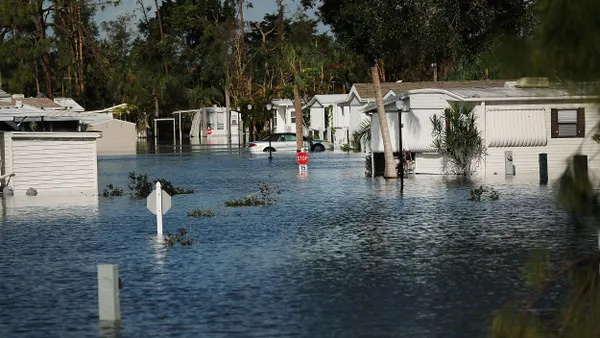Dive Brief:
- A group of federal lawmakers introduced a bill last month to expand the number of communities that can access federal relief funds in the wake of natural disasters.
- Sens. Elizabeth Warren, D-Mass., and Ted Cruz, R-Texas, joined with Reps. Brian Babin, R-Texas, and John Garamendi, D-Calif., to introduce the bill, which would allow communities contiguous to an area hit by a presidentially declared major disaster to access federal relief funds, even if they aren’t in the same state where the disaster was declared.
- The Regional Impact of Disasters and Emergencies Relief, or RIDER, Act would also modify the Federal Emergency Management Agency’s definition of a “major disaster” to include cumulative impacts of disasters over a yearlong period, even if none individually meet the threshold for federal relief.
Dive Insight:
“Too often after a natural disaster, we have seen impacted communities excluded from financial help because of technicalities or subjective standards,” Babin said in a statement. Babin and Garamendi introduced a version of this bill during the last Congress, according to a news release. The Senate referred the recently introduced version of the bill to its Committee on Homeland Security and Governmental Affairs.
The federal government declares major disasters when the president determines that state and local governments can’t afford to respond on their own. But the rules for distributing disaster relief don’t always match with communities’ experiences, according to lawmakers’ summary of the bill.
“In recent years, several communities in Southeast Texas were hit by major disasters but were excluded from any public or individual assistance – even though their property lines were mere yards away from where the federally declared disaster was issued,” Babin said.
The bill’s proposal to allow communities contiguous to areas hit by officially declared major disasters to access federal funds “would improve the distribution of disaster relief funds by recognizing that disasters do not neatly follow county or state lines,” the legislation summary says.
The part of the bill that would enable FEMA to declare major disasters based on cumulative damage to a community “responds to concerns that existing federal regulations do not sufficiently account for the impact of cumulative disasters on a region,” the legislation summary says. Sean Reardon, the mayor of Newburyport, Massachusetts, said in Warren’s press release that “recurring weather can be just as dangerous as one-time storms.”
In 2023, the U.S. experienced a historic 28 weather and climate disasters that cost more than a billion dollars each, including the wildfires in Maui, Hawai’i, and four separate flood events across the country. In 2024, the federal government has declared 81 major disasters so far, according to FEMA.
“The growing climate crisis means natural disasters and emergencies are only going to become more common,” Warren said in a statement. “Part of tackling the crisis head on is making sure we’re ready to deliver critical relief to impacted communities when they need it most.”
That may not be an easy feat, especially if FEMA remains in its current funding predicament. The agency is straining under the financial demands of disaster after disaster, and it doesn’t have enough funding to make it through this hurricane season, Homeland Security Secretary Alejandro Mayorkas told reporters last week.
FEMA began operating on an “immediate needs funding” basis in early August, meaning that while it was still funding immediate life-saving efforts, it halted certain recovery efforts for past disasters, according to the Union of Concerned Scientists. FEMA lifted the immediate needs funding restrictions on Oct. 1 after federal lawmakers signed a continuing resolution giving FEMA access to $20 billion. That allowed the agency to resume work on more than 3,000 projects that had been delayed, according to the National Association of Counties.
“For counties, the lifting of [immediate needs funding] restrictions marks an important step in resuming recovery efforts,” NACo said in an Oct. 3 statement. “However, the continued uncertainty surrounding disaster funding highlights the need for long-term solutions to ensure predictable and stable funding for communities recovering from disasters.”












